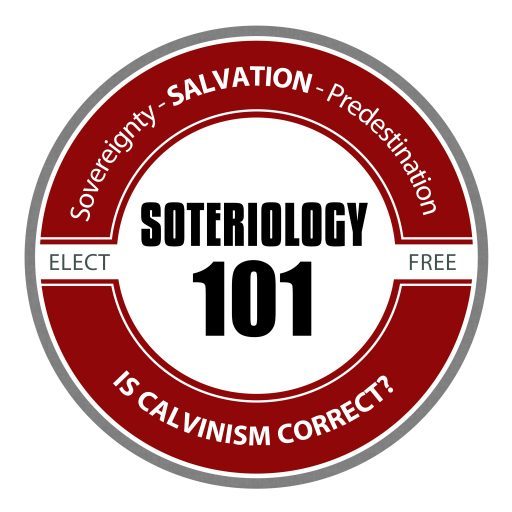OK.
Since you don't expect it, I will consider it.
God is omniscient, or he is not God.
Can the outcome of free will be predetermined?
Logic does not demand that there is free will. Only choice. I happily admit to —in fact, I insist on— real choice, with real, even eternal, consequences.
In logic we would say that these two are mutually exclusive. If a result is predetermined then it is fixed and cannot be freely chosen - i.e. the result of free will. The converse is also true, if a result can be freely chosen, then it cannot have been predetermined. So it would seem that God could not predetermine the results of free will which he gave to humanity.
Then it seems to me you need to show how a thing is freely chosen, either according to your definition of freedom, or of free will, or something explanatory to your point, that 'predetermined' is mutually exclusive with 'free choice'. How is a thing freely chosen? Is not it enough to say a thing is actually chosen?
Calvinism/Reformed Theology usually (I think) teaches that man's will is inextricably tied to his inclinations. I agree —we always choose according to what we are inclined to choose, even if only so for that very instant in which we make a decision.
The other issue is foreknowledge - could God know beforehand the outcome of free will? I argue no.
Since you appeal to logic: How would God be the one and only first cause, (logic demands only one can be first, or there is an implied governing principle to which he is subject, and thus, he is not first cause), yet something come about that he did not know about? Is there a governing principle, perhaps "causation by chance", that caused things he could not predict? 'Causation by chance' is, I hope you can see, self-contradictory.
But Biblically, he is omniscient. And specifically, concerning our thinking: Psalm 147:5; Psalm 139:1-4; Hebrews 4:13; Proverbs 21:1; 1 Kings 8:39, just for starters...
As below, if God knew that eve would sin, then him not preventing it is sin to him, which we as Christians believe is impossible.
How would that be sin for him to fail to stop anyone from sinning? I'm expecting about this point you are starting to see that he operates on a different level from the rest of us.
Looking at it from a mathematical perspective, such things would be the domain of Non linear dynamic equations, which humanity cannot solve (as such we don't know whether it is possible to solve them). These equation led to the development of chaos theory, because it was seen that at certain points the outcome of these equations cannot be predicted, which is my main point here - it would stand to reason that human free will is so complex that at some point the outcome of free will cannot be predicted - even by God.
So, you propose a principle beyond God, who, as far as I know, you still consider to be First Cause? I'm hoping you see the contradiction there. By the way, the fact WE can't predict a thing by no means implies it is
actually random. We use such words as shortcut' to "I don't know". If we are too lazy, too limited in time or too lacking in detail to figure out how a thing came about, it is not logical to attribute the same ignorance to God.
By the way, Chaos Theory is stupendous. Not only is 'chaos' hemmed in, but it is unprovable. We only see, "chaotic".
This does not make God any less omniscient, it is simply a statement that the outcome of free will cannot be known. As far as I know the Bible doesn't give us enough information to actually draw any solid conclusions whether this speculation is wrong or right, so we might just have to leave it there!
That does render God less than omniscient. If there is a fact, then God knows it.
(One of my favorite things with which to shake people's confidence in mere "possibility", is the consideration of the fact that throughout all history, we have never had epistemic reason to believe that anything is possible, except whatever actually happens.)
To me, if God knew that humanity would sin before he created them, then he is guilty of sin himself. I get this from common law which states that if a person knows that crime will be committed and does nothing to prevent it, that person is guilty of committing the crime, equal to the actual perpetrators. If this justice can be honestly applied to God, then we either saying he is guilty, or not omnipotent.
It cannot be applied to God, who is himself above this fray causally. He is doing this for his own sake, even for a specific end. This is all for his purposes, including the necessity that there be sin, penalty, and a savior. He is not working against his purposes in causing that there be sin.
In any case, aside from this issue, say he knew that people would sin, and that he needed to send Jesus Christ to be a propitiation for that sin. This still is a long way from him predetermining who would accept that offer of salvation, and who would not.
Well, there is, still, the simple logic of causation to deal with —that if he knew but caused it anyway, he intended it to happen. But, besides that, the doctrine of Election is not drawn out of thin air. The Bible teaches that God chose some, but not all.



